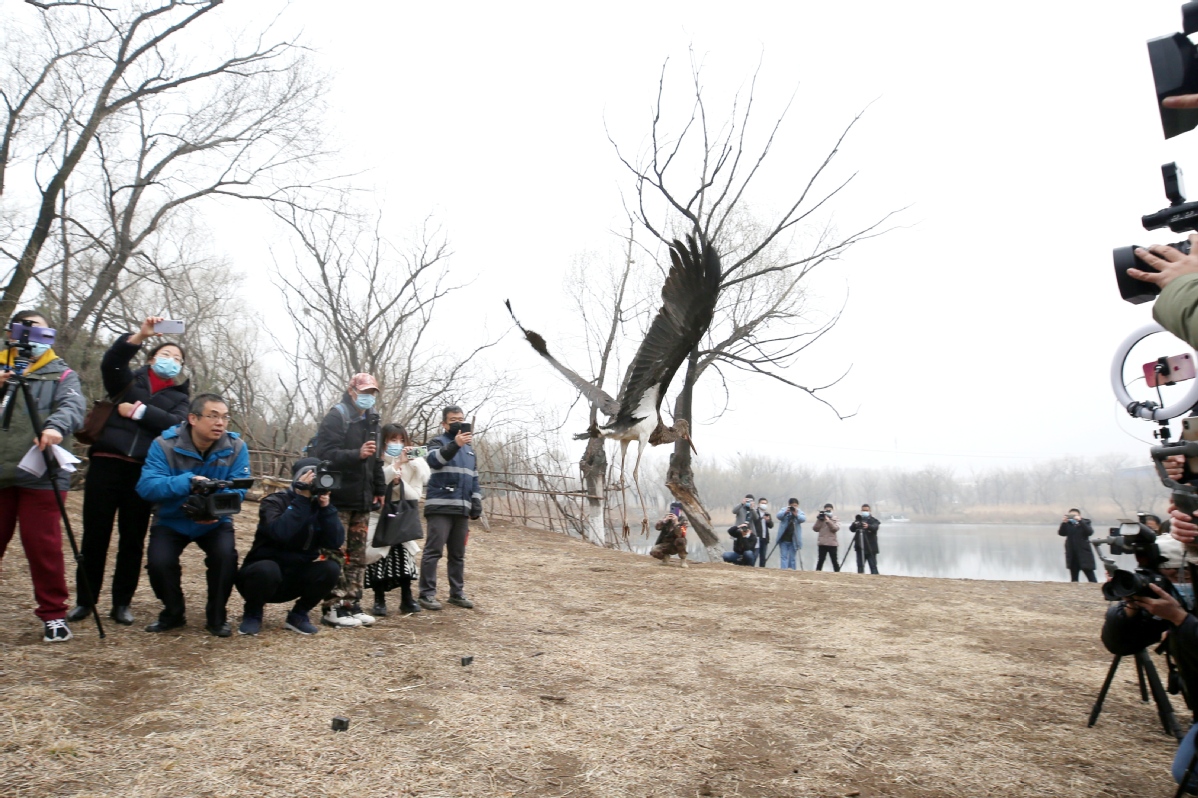Capital extends helping hand to wildlife


Authorities strengthen efforts to protect species
Residents of a city such as Beijing do not often see wild birds and animals, but this is not the case for Fang Chun.
For the past 15 years, he has been observing migratory birds in the capital's northwestern district of Yanqing, where their numbers are continuing to rise.
This year, Fang, 54, telescope in hand, began monitoring the birds at Wild Duck Lake National Wetland Park from the start of last month.
"The first flocks of migratory birds flying north arrived a few days after Spring Festival," he said.
In a log recording his observations, Fang wrote:"On Feb 12, the first whooper swan of the year appeared at the lake, while on Feb 18, five whooper swans, two smews (diving ducks) and nine mallard ducks came. Close to 1,000 common cranes also flew around the lake."
An estimated 100,000 migratory birds rest at the lake every year before moving further north for the summer, Fang said.
"In November and March, Wild Duck Lake becomes a 'swan lake' and there are magnificent views of the birds," he said.
Fang, who used to teach physical education, successfully turned his hobby of observing wild birds into a job by learning about avian species from books and photographs. He also sought help from experts.
He can now identify different species of migratory birds with just a single glance.























